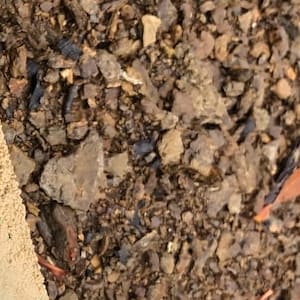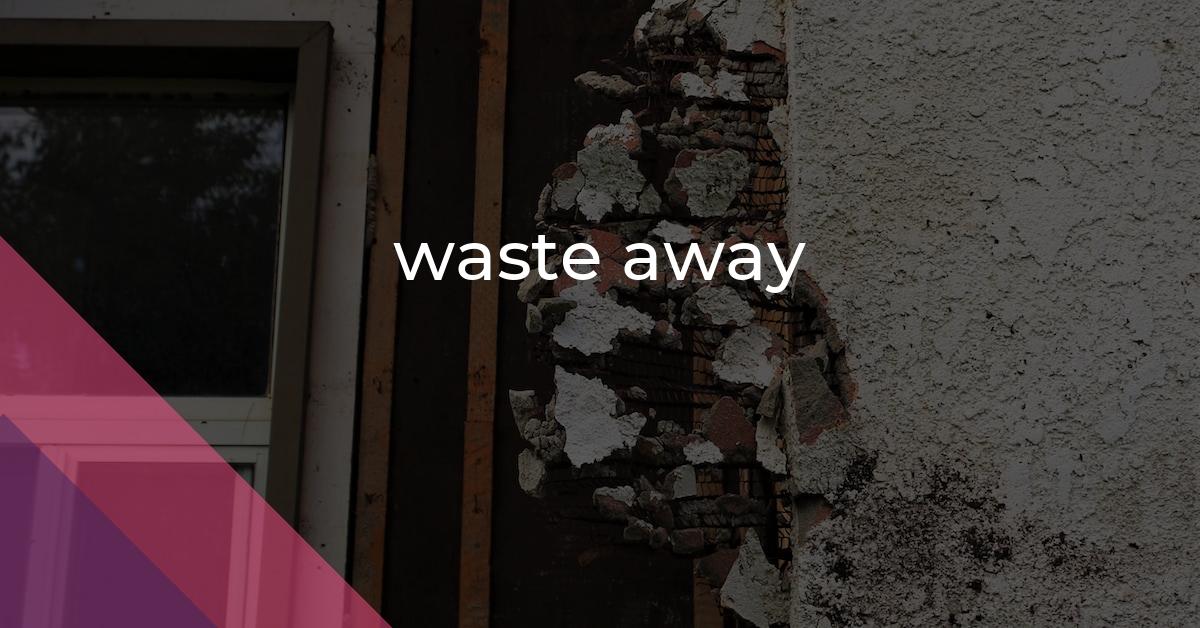waste away: Idiom Meaning and Origin
What does ‘waste away’ mean?
The idiom "waste away" means to gradually become weaker, thinner, or less healthy, often due to illness or lack of proper care. It implies a continuous decline in physical condition or overall well-being.

Idiom Explorer
Idiom Analysis:
"Wither on the vine" means to gradually and inevitably become weak, lose strength, or fail due to neglect or lack of action.
The idiom "wind down" means to relax or become less active and energetic after a period of intense activity. It implies a gradual decrease in intensity or pace, allowing oneself to unwind and destress.
The idiom "wear thin" means to gradually lose one's patience, endurance, or tolerance towards something or someone. It implies that the situation or person is becoming annoying, irritating, or tiresome over time.
The idiom "water down" means to dilute or weaken something, making it less potent or effective.
The idiom "waste breath" means to spend time and effort saying something that will not be listened to or taken seriously, resulting in a pointless or futile act of speaking.
The idiom "waste not, want not" means that if you don't waste anything, you won't lack anything. It emphasizes the importance of being frugal and not being wasteful in order to avoid future wants or needs.
The idiom "wash out" means to fail or not be successful in an activity or endeavor. It can also refer to something that has been completely ruined or destroyed.
The idiom "washed out" means to be exhausted or worn out, both physically and emotionally. It can also refer to something that appears faded or lacking in color or intensity.
The idiom "throw money away" means to spend money on something that is essentially wasteful or unnecessary, resulting in a loss of money or resources.
This phrase suggests a careless or frivolous attitude towards money, implying that the person is not concerned about the value or usefulness of what they are spending their money on.
The idiom "throw away" means to get rid of or discard something without considering its value or potential usefulness.
The Vanishing Essence
The idiom "waste away" is commonly used in the English language and has a figurative meaning. It refers to a gradual or continuous decline in health, strength, or vitality. When someone is said to be "wasting away," it implies a state of decline or deterioration, usually due to a prolonged illness, malnutrition, or severe physical or emotional stress.
This idiom can be traced back to the early 17th century, and its origin can be understood by the combination of the words "waste" and "away." The word "waste" in this context means to gradually lose or diminish, while "away" emphasizes the gradual nature of the decline. The phrase "waste away" often describes a slow, steady process, as if the person's physical and mental attributes are slowly eroding.
Historically, the idiom has been used in literature, poetry, and everyday speech, creating a vivid image of physical deterioration and the loss of vitality. It is frequently employed when depicting characters suffering from chronic illnesses, such as tuberculosis, cancer, or other conditions that cause severe weight loss and overall decline in health.
When examining the usage of this idiom in contemporary American English, it is evident that it is still widely employed to convey a sense of physical or emotional decline. The figurative nature of the expression allows for its application in various contexts, including discussions about personal health, relationships, and the state of society. For example, one might say, "Sitting in the hospital for months, he wasted away, becoming a mere shadow of his former self."
It's interesting to note that the idiom "waste away" perfectly captures the human vulnerability and transience, as it confronts the audience with the stark reality of physical decline and the frailty of life. It is a powerful expression often tied to themes of mortality and the passage of time.
The related idiom "on the wane" is used to describe a similar concept as "waste away." "On the wane" refers to a gradual decline or decrease in something, whether it be popularity, influence, or effectiveness. The phrase suggests that the subject is experiencing a diminishing phase, similar to someone wasting away. For example, one might say, "The company's profits are on the wane, as competition in the market increases."
Another related idiom is "fool away," which has a slightly different connotation. "Fool away" means to waste or squander something, usually time or resources, in a foolish or frivolous manner. It implies that the person is engaging in actions that have no real value or purpose, much like someone wasting away their time. An example sentence could be, "Instead of studying for the exam, he fooled away the whole day playing video games."
The idiom "wear thin" is yet another expression that relates to the concept of decline or diminishing. "Wear thin" means that something is becoming less effective, interesting, or believable over time. It suggests that whatever it is, whether it be an argument, a joke, or a relationship, is losing its impact or effectiveness. This is similar to how someone wasting away gradually loses their strength or vitality. For instance, one might say, "His excuses for being late to work are wearing thin, and his boss is starting to lose patience."
The idiom "washed out" is also related to the idea of decline or deterioration. "Washed out" means to become faded, dilapidated, or worn out, often referring to colors or physical appearance. It can also describe a person feeling exhausted or drained, much like someone wasting away. For example, one might say, "After a long day of physical labor, he looked washed out and in need of rest."
Lastly, the idiom "wither on the vine" is a vivid expression that signifies gradual or slow decay or decline. It is often used metaphorically to describe something or someone that is being neglected or ignored, leading to their demise or loss of vitality. This is similar to how someone wasting away gradually loses their health or vitality. One could use this idiom in a sentence like, "Without proper care and attention, the project will wither on the vine and fail."
Overall, the idiom "waste away" and its related idioms, such as "on the wane," "fool away," "wear thin," "washed out," and "wither on the vine," all convey the concept of decline, deterioration, and loss of vitality. They provide a powerful way to describe the gradual loss of physical or mental attributes, as well as the diminishing effect of time, neglect, or foolish actions. These idioms are valuable tools in the English language, allowing us to capture complex ideas and emotions in a concise and relatable manner.
Example usage
Examples of how the idiom *waste away* can be used in a sentence:
- She has been sick for months and her frail body is slowly wasting away.
- Despite his efforts to eat more, he continues to waste away due to his illness.
- Without proper nutrition, the starving child will waste away and become weaker.
More "Health" idioms



